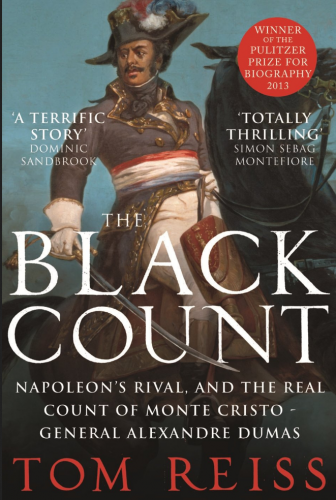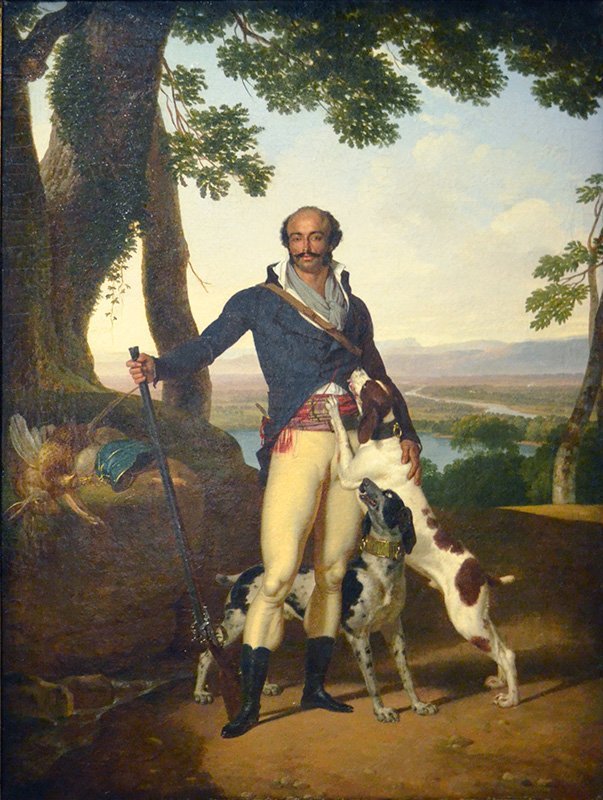Episode 14: Black Heroes from the French Revolution: General Alex Dumas
We’re going to France during the Revolution to look at black heroes that everyone should know. The things they achieved and the lack of attention they receive is mind boggling.
You may have heard of Alexandre Dumas. Few writers have been as consistently popular for the last two centuries. He penned such beloved books as “The Three Musketeers” and “The Count of Monte Cristo”. We’re going to focus on his father – Thomas Alexandre Dumas, who preferred to go by Alex Dumas. In spite of of his humble origins in Haiti, the son of an enslaved woman, Dumas would become a 4-star general and a shining example of the first true age of emancipation.
Fantastically Terrible Character or Creature
The ‘Fantastically Terrible Character or Creature’ is the original zombie from Haiti. Tragically, many believed the captured souls were used for ‘undead’ slave labor on farms and sugarcane plantations. I wonder if this was a reflection of how tragic their situation was…that even in death their bodies were forced into slavery and their souls couldn’t return to Africa. [read more…]
How to Listen
The best way to support the show is to subscribe on iTunes and leave a review. We’ll personally thank you live at the end of show! 
Latest News and Episodes
Get all the latest episodes, breaking news, opinions, weather, traffic, and more…Um, minus the weather and traffic and add a lot of laughs. 
Personal Thank You!
If you’d like to help out the show, please leave a comment on iTunes. This will help others to find us. We’d also love to hear from you and we’ll thank you live on the show!
Inspiring Life of General Alex Dumas
The following excerpt is from the prologue of an incredible book that I highly recommend called, “The Black Count: Napoleon’s Rival, and the Real Count of Monte Cristo – General Alexandre Dumas” by Tom Reiss, who won the Pulitzer Prize for Biography in 2013. [click here for Amazon.com]


Alex Dumas I
“The original Alexandre Dumas was born in 1762, the son of Antoine Alexandre de l’Isle, in the French sugar colony of Saint-Domingue [modern day Haiti]. Antoine was a nobleman in hiding from his family and from the law, and he fathered the boy with a black slave [Marie Cessette Dumas]. Later Antoine would discard his alias and reclaim his real name and title – Alexandre Antoine Davy, the Marquis de la Pailleterie – and bring his black son across the ocean to live in pomp and luxury near Paris. But the boy would reject his father’s name, along with his noble title. He would enlist in the French army at the lowest rank, taking the surname “Dumas” from his mother for his enlistment papers. Once he’d risen by his merits to higher rank he would not even sign his name “Alexandre,” preferring the blunt and simple form “Alex Dumas”.
Alex Dumas was a consummate warrior and a man of great conviction and moral courage. He was renowned for his strength, his swordsmanship, his bravery, and his knack for pulling victory out of the toughest situations…He was a soldier’s general, feared by his enemy and loved by his men, a hero in a world that did not use the term lightly.
Inspiration for the Count of Monte Cristo
But then, by the wiles of conspiracy, he found himself imprisoned in a fortress and poisoned by unknown enemies, without hope of appeal and forgotten by the world. It was no accident that his fate sounds like that of a young sailor named Edmond Dantès, about to embark on a promising career and marry the woman he loves, who finds himself a pawn in a plot he never imagined, locked away without witnesses or trial in the dungeon of an island fortress called the Château d’If. But unlike the hero of his son’s novel The Count of Monte Cristo, Alex Dumas met no benefactor in the dungeon to lead him to escape or to a hidden treasure. He never learned the reason for his trials, for his abrupt descent from glory to suffering. I had come to Villers-Cotterêts to to find the truth of what befell this most passionate defender of “liberty, equality, and fraternity.”…
Brilliant General
Alex Dumas first came to the army’s attention when, still a lowly corporal, he single-handedly captured twelve enemy soldiers and marched them back to his camp. Not long afterward, he led four horsemen in an attack on an enemy post manned by over fifty men – Dumas alone killed six and took sixteen prisoner. As a Parisian society journalist in the early nineteenth century summed up, “Such brilliant conduct, on top of manly physiognomy and extraordinary strength and stature, secured his quick promotion; it wasn’t long before his talents proved he deserved it…
As general-in-chief of the Army of the Alps, roughly equivalent to a four-star general today, Dumas put on spiked boots and led his men up seemingly impregnable ice cliffs at night to surprise an Austrian battery that seemed unassailable as the guns of Navarone. He captured the enemy’s material and turned their own guns against them, forcing immediate surrender. He took not only 1,700 prisoners and over forty artillery pieces but Mont Cenis, the key to the Alps….[a great strategic victory for France].

Ideological Clash between Dumas and Napoleon
When they were still both generals in the French Revolution, Napoleon celebrated Alex Dumas’ deeds in the classical terms favored at the time, proclaiming him the incarnation of Horatius Cocles, the ancient hero who saved the Roman Republic by keeping invading barbarians from crossing the Tiber.
When Napoleon launched the French invasion of Egypt, Dumas went as his cavalry commander, but it was there that the two very different soldiers came to loathe each other. The clash was ideological – Dumas saw himself as a fighter for world liberation, not world domination – but it was also personal [for Napoleon].
Among the Muslims, men from every class who were able to catch sight of General Bonaparte were struck by how short and skinny he was,” wrote the chief medial officer of the expedition. “The one, among our generals, whose appearance struck them more was…the General-in-Chief of the cavalry, Dumas. A man of color, and by his figure looking like a centaur, when they saw him ride his horse over the trenches, going to ransom prisoners, all of them believed that he was the leader of the expedition.”
To read more, pick up a copy of “The Black Count: Napoleon’s Rival, and the Real Count of Monte Cristo – General Alexandre Dumas” by Tom Reiss
Reference & Links
General Alex Dumas
★ Alexandre DumasFrench general [1762–1806]
★ General Thomas Alexandre Dumas – Napoleon’s ‘Black Devil’
★ So … Alexandre Dumas was Black?
★ Napoleon and the Legendary Black General Thomas-Alexandre Dumas
Alexandre Dumas Books
★ “The Three Musketeers” (html, pdf, epub,…)
★ “The Count of Monte Cristo” (html, pdf, epub,…)
★ “George”
And more…
★ Garibaldi and Dumas: When History and Literature United to Change a Nation
★ Slavery in the French Colonies: Le Code Noir (the Black Code) of 1685
★ The history of the idea of race
★ People of Color in European Art History
★ Enlightenment, Scientific Racism and Slavery : A Historical Point by Dave Foutz (quotes from Voltaire and others)
★ How The Arc De Triomphe Was Nearly An Elephant
★ How black women were whitewashed by art
★ A People’s History of the United States by Howard Zinn (book pdf)
★ Black Tudors: The Untold Story
★ “Revealing the African Presence in Renaissance Europe” (book pdf)
Related Posts
★ Alexandre Dumas and Le Trois Dumas: Three Generations of Greatness
★ The Black Model / Le Modèle Noir Exhibition in Paris
★ Charles Cordier and the Beauty of Black and Brown
★ Black Models of Jean-Baptiste Carpeaux and Herbert Ward
★ Crochet Petite Josephine Baker
★ Crochet Musketeer d’Artagnan




